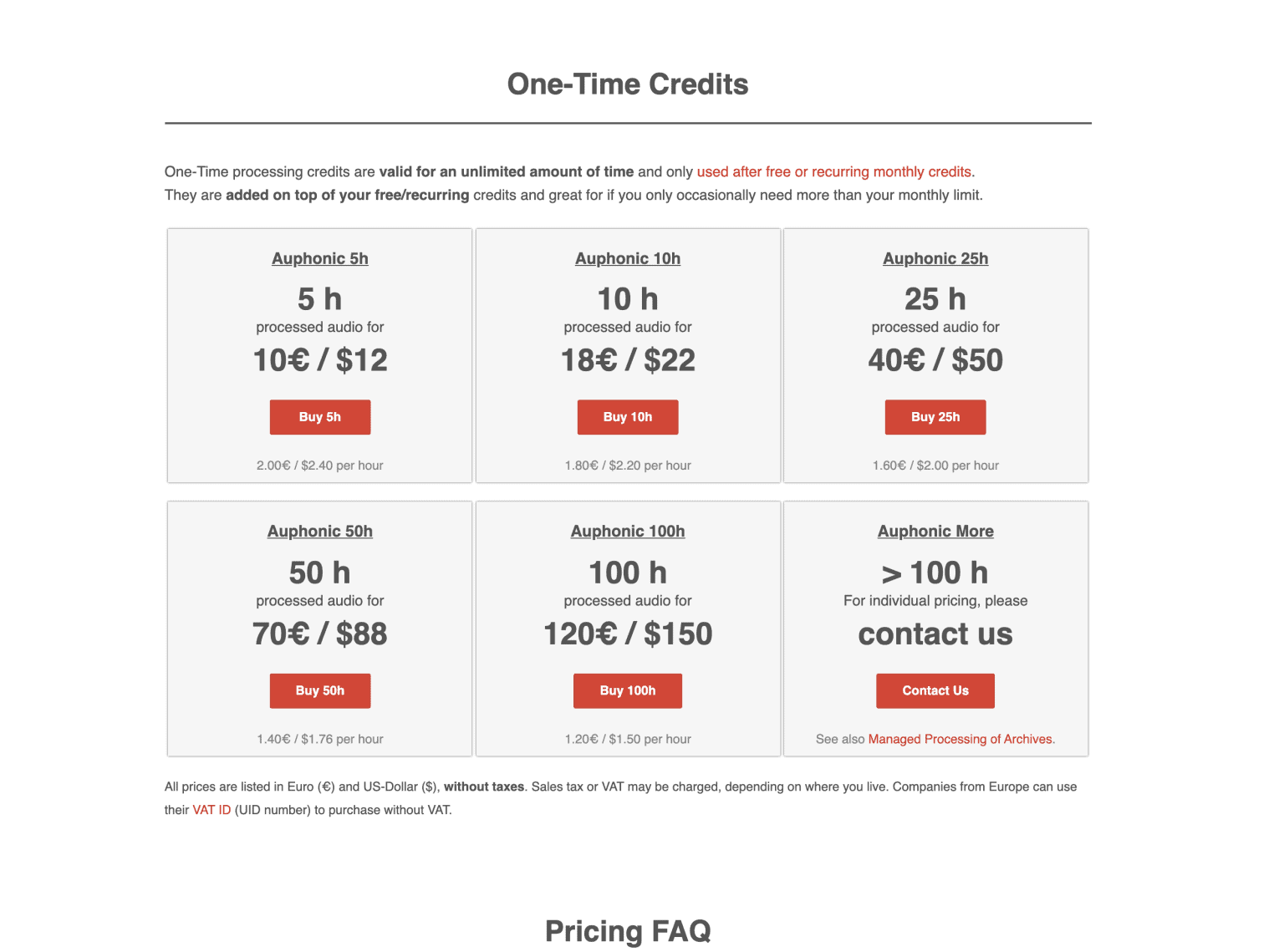

#Auphonic vs levelator movie
One day, I'll be able to afford a quiet, cold sound booth in my apartment, and this will no longer be such an issue.Ĭoming from a movie background, I look at podcasts in a similar way. The music will mask whatever little buzzy noise the laptop fan might be making. On an especially hot day where the laptop is just overloaded in general, I'll record myself with a music bed underneath. Then you can turn the fan back down to normal speed when you're ready to roll.
#Auphonic vs levelator for mac
There's an app for Mac called SMC Fan Control that allows you to turn the fan on your laptop on full blast for a few minutes before you record.

The other thing I battle against a lot is noise in my own apartment, including the fan noise on the laptop I'm using to record myself over Garageband. So we usually end up with several more recordings than we actually need, but better safe than sorry. We've learned to always place a few extra of our own Zoom H2n mics on Joby tripods around the theater in case anything goes wrong with a stranger's equipment. Live recordings are not nearly as dynamic if the audience is not well recorded. We need them to be recording both the performer and the audience. Touring from town to town, we have to make sure the sound engineers in the various theaters we work with are on the same page with us on the phone before we show up for a gig. I address it by giving it the appropriate time it needs.įrom a hyper-technical standpoint: noise and gunk-I address it with RX :)

Each ~20 minute show takes between 100-150 hours to make, with the majority of that time spent on editing. My hope is in time, people will start to appreciate, enjoy, and protect their sense of hearing.įrom a more technical standpoint: editing. The way I tackle it is to make an ultra highly-produced and high-budget (at least for podcasting standards) show about sound. If we put that much thought into sound, we can make some amazing things! I come from the television, film, and game worlds where there are sometimes hundreds of people focused on the visuals. This leads people to put very little thought into sound or default to the cheapest/fastest possible solution. Hearing is grossly undervalued as a sense, and people tend to think "sound" is a club they need to be invited to before having an opinion. From a high level, the biggest audio challenge is apathy.


 0 kommentar(er)
0 kommentar(er)
